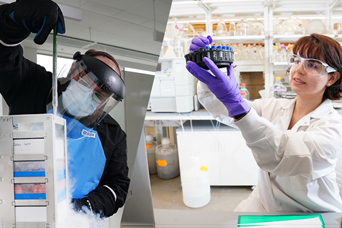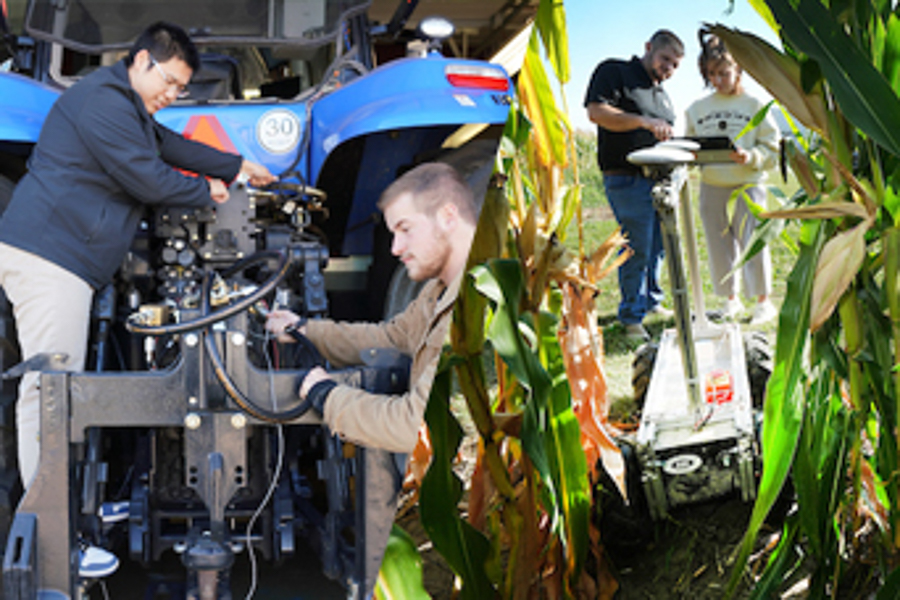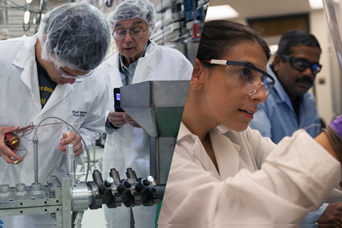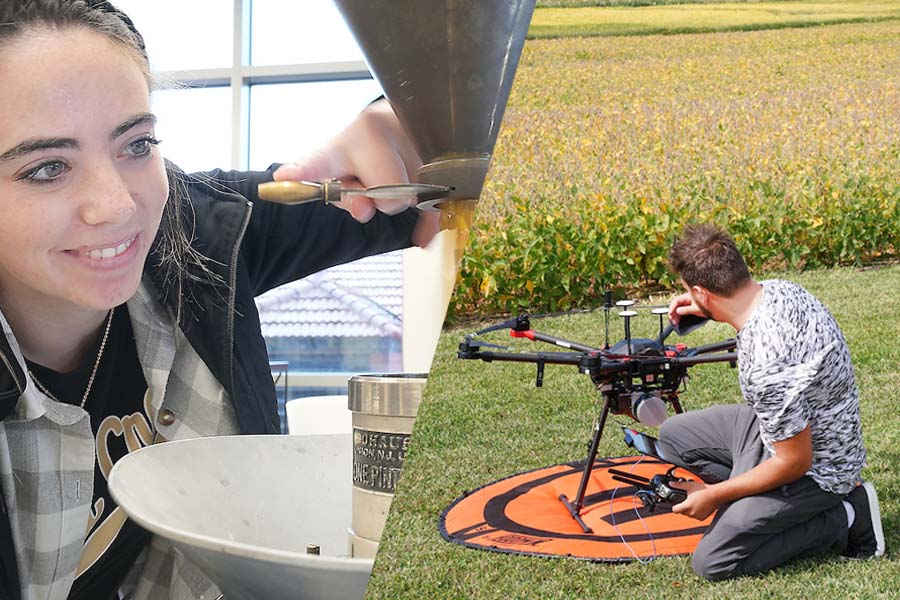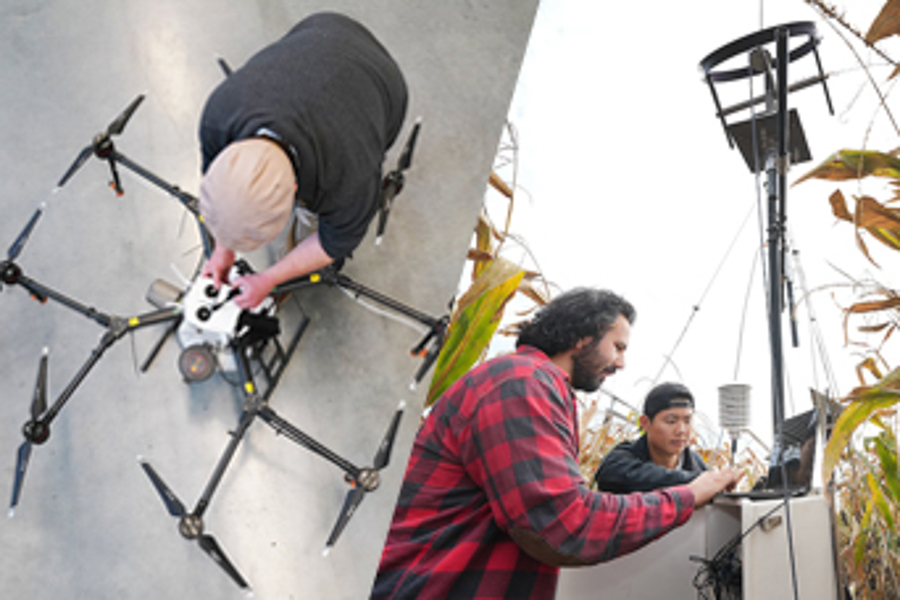Begin your journey to solve global challenges
The Purdue University Department of Agricultural and Biological Engineering graduate program is currently ranked #1 by U.S. News & World Report and has been nationally ranked for more than a dozen years. State-of-the-art facilities and internationally-known faculty support an average of 100 on-campus ABE graduate students per year and 160 graduate students through ABE's hybrid Biotechnology Innovation & Regulatory Science program.
In Agricultural and Biological Engineering at Purdue University, internationally known faculty and highly motivated graduate students collaborate to advance scientific and engineering frontiers. Graduate education is the foundation of our quest to extend knowledge frontiers, and we offer opportunities for fundamental and applied research applying engineering principles to agricultural and biological systems. Our innovative research creates products and processes that address national and global challenges in food, energy, water, health, and the environment.
Our research endeavor is categorized into seven areas that span the breadth of the field. Our faculty members are often categorized under multiple research areas.
Areas of Research for Graduate Students in ABE
Giant Leaps in Agricultural and Biological Engineering
We are committed to the success of our graduate students and are eager to see your contribution to the research and scholarship in this field. All incoming graduate students must be supported by a faculty member as their advisor, so we recommend that you directly contact faculty members who do research in your area of interest. Nearly all our graduate students are supported by fellowships, research assistantships, or teaching assistantships, some of which are only available when applying during the summer/fall admission cycle (see the Admissions Timeline). All admission materials must be submitted by December 1st to be included in the fellowship selection review. Some extenuating circumstances are allowed: contact Nikki Zimmerman with any questions. (Master's students who plan to work towards a Ph.D. qualify as well).

